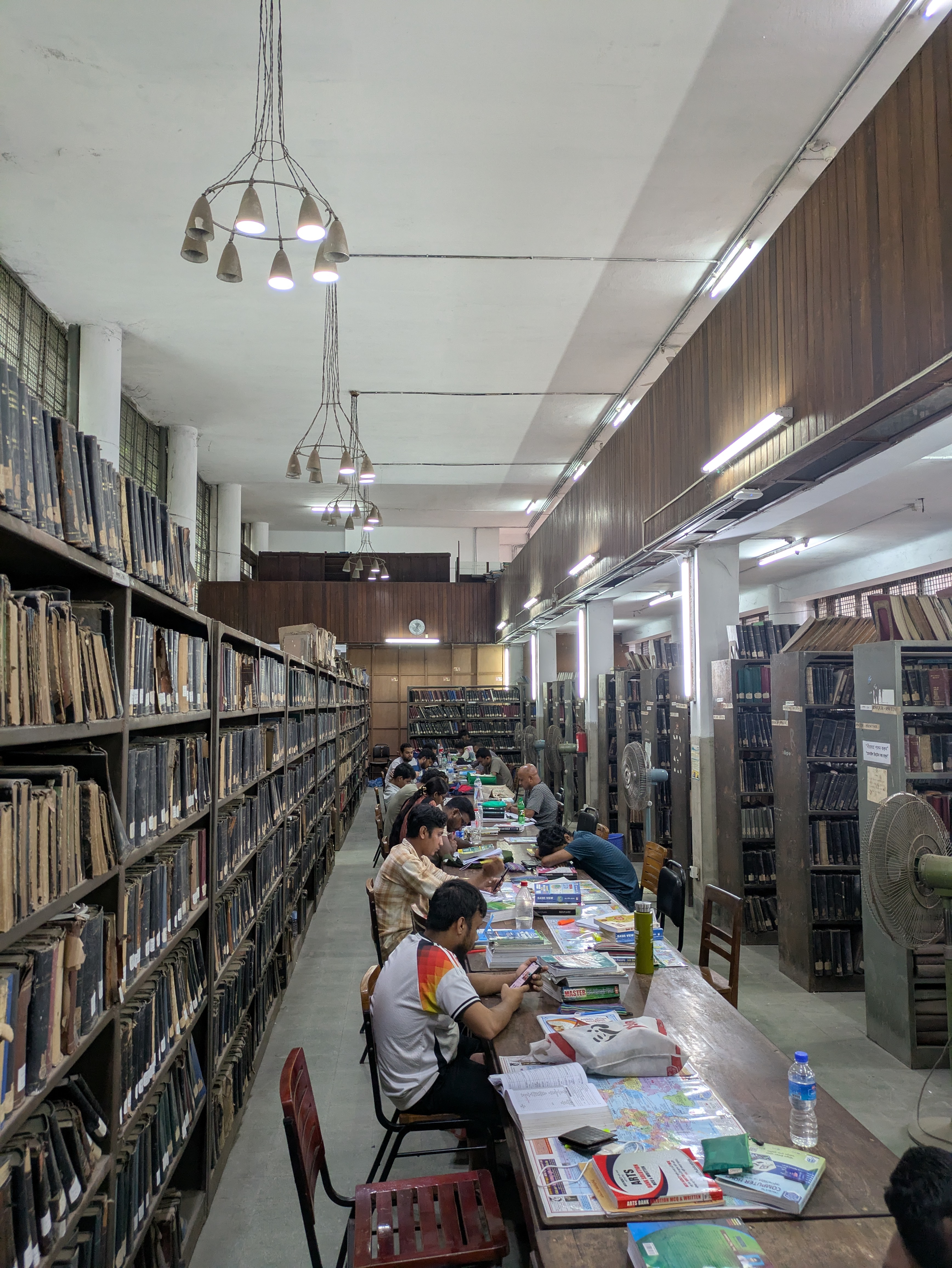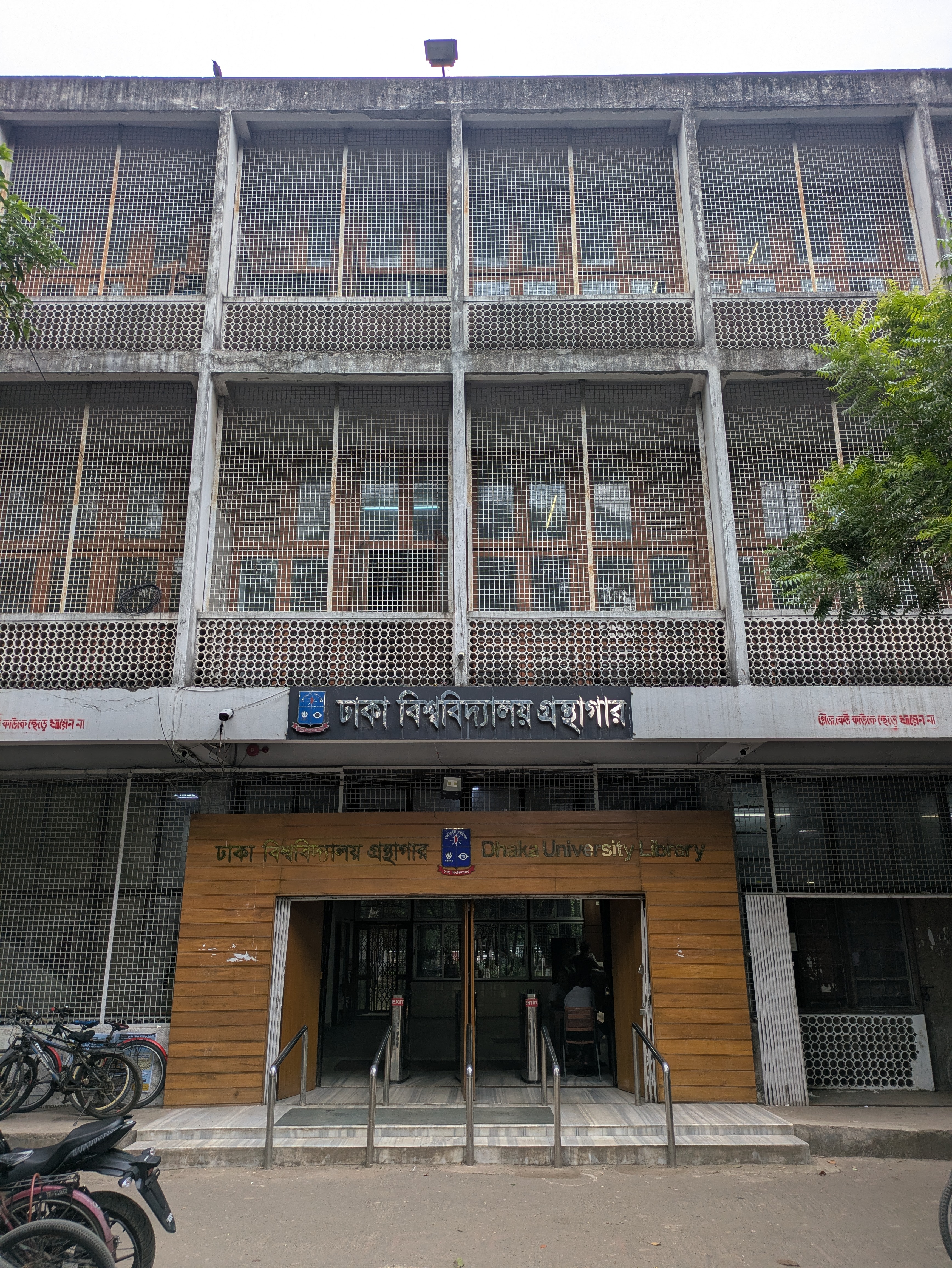Dhaka University Day: No line at central library as halls improved
Dhaka University Day: No line at central library as halls improved

Just a year ago, long queues outside the Dhaka University central library were a daily sight. Although the library opened at 8am, hundreds of students — particularly BCS and government job aspirants — would begin lining up as early as dawn. Some even queued from midnight just to deposit their bags, a prerequisite for securing a seat.
That scene, however, has dramatically changed since the student-led movement in July. Now, students can easily find a place in the library at any time of the day without standing in long lines at the crack of dawn.
Change in hall allotment system brings visible impact
For nearly 15 years, Dhaka University’s male dormitories were largely controlled by student political leaders, particularly from the Bangladesh Chhatra League (BCL). They determined who could reside in the halls and in which room, often allowing students who had already completed their academic tenure to continue living there through political connections. This disrupted not only the university’s accommodation system but also put strain on shared facilities like the library.
Usually the validity of access to the library is limited to five years since being admitted into the university. However, with extended stays at the residential halls came the perk of extended access to the central library.
Following the July uprising, however, authority over hall seat allotments has gradually shifted back to the university administration — a move that has significantly improved access to library resources for regular students.

Professor Dr Abdullah-Al-Mamun, provost of Salimullah Muslim Hall and chair of the university’s Provost Standing Committee, told The Business Standard, “Now, only regular students are being allotted seats in the dormitories. Both seat allocation and hall management are under full administrative control.”
Students say the reduction in non-regular residents has had a direct impact on the once-crowded central library.
Rezaul Alam, a student of the Department of Mass Communication and Journalism, has been preparing for government job exams at the DU central library for the past two years.
Sharing his experience, he said, “Before the July uprising, I used to drop off my bag right after Fajr prayers just to secure a spot. These days, I can easily find a seat even in the afternoon.”
He attributes the change to the departure of students who had long overstayed in the halls despite completing their degrees.
“Previously, many continued to stay in the halls even after finishing their master’s. That’s no longer possible,” he added.
A visit to the library around 9am on Monday confirmed his claim — several seats were still vacant, a stark contrast to a few months ago when securing a spot during that hour was nearly impossible.
This reporter spoke to at least eight former students who had completed their academic tenure but were still preparing for government jobs at the central library prior to the July movement.
Many of those who once frequented the Dhaka University central library for job preparation now find themselves living outside campus—some in Lalbagh, others in Azimpur, and several have returned to their home districts.
Amanullah Riaz, who completed his post-graduation from the Department of Philosophy in 2023, stayed in Dhaka for five months after the July uprising to continue his government job preparations at the library. However, rising living expenses without dormitory access forced him to return to his home district, Rangpur, where he is now continuing his preparation.
“Before the regime change, I never imagined I’d have to vacate the hall so abruptly. Now, no one is allowed to stay after completing their master’s—it was unthinkable before,” Riaz said.

Riaz’s story echoes that of many other job aspirants from Dhaka University.
Farzeeb Salman, who completed his post-graduation nearly two and a half years ago, had also been preparing for public service exams. “Previously, it was an unspoken norm that you could stay in the halls for a while after your master’s. But after the uprising, I complied with the new rules and moved out,” he said.
“While staying in the halls, I used to prepare at the central library and the reading rooms. Now that I’m no longer a resident, I’ve shifted to my Azimpur home and continue studying there,” he added.
Debate over job prep at DU library persists
The use of the Dhaka University central library for government job preparation has long been a subject of debate. Intended primarily as a space for academic study, the library has, over time, become a hub for BCS and other job exam candidates. Even today, a significant number of students frequent the library primarily for job preparation rather than coursework.
Professor Tariq Monzoor of Dhaka University’s Bangla department told The Business Standard that a university’s central library should never become a hub for BCS or government job preparations.
“A residential student is supposed to study in their hall, in their own room. Reading rooms can be set up within the halls for that purpose,” he said.
According to him, students had long been deprived of a proper study environment in the halls. “While it cannot be said that the current hall environment is ideal, at least the intimidation by pro-government student political organisations is no longer present. Whether this atmosphere can be preserved in the long run remains to be seen,” he added.


